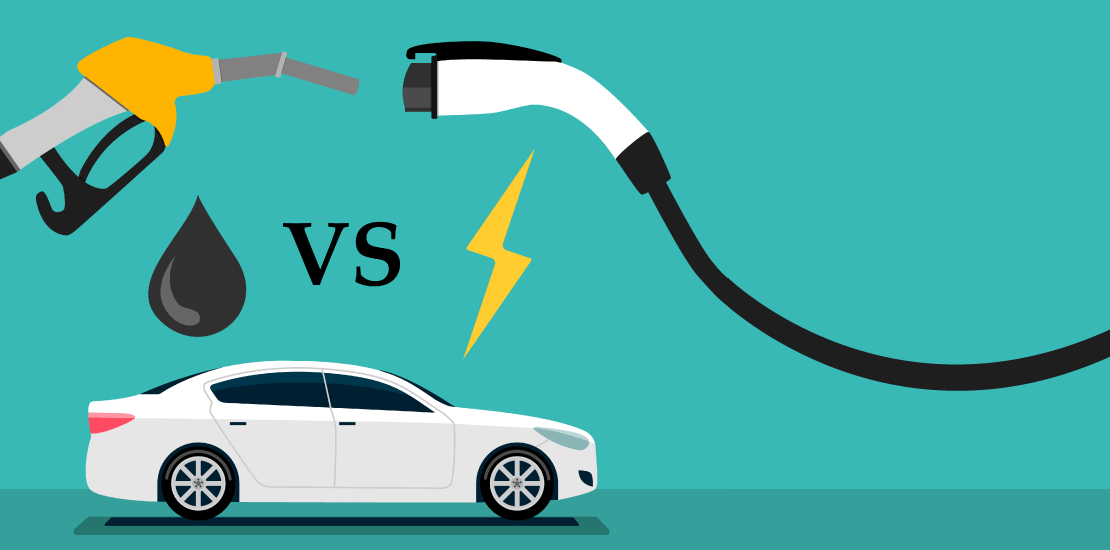Are electric cars faster than regular cars? Let’s find out in this article. Within the quickly changing field of automotive technology, the competition between electric and conventional cars has generated a lot of discussion.
Whether electric automobiles can outperform conventional vehicles on the road is one of the most interesting concerns. Are electric vehicles actually faster, or is this simply another automotive innovation myth? Let’s find out.
Electric cars have gone a long way, and their rise in popularity can be attributed to developments in battery technology.
The idea that electric vehicles (EVs) only accelerate slowly has been challenged by the emergence of high-performance electric sports cars, such as the Tesla Roadster and Porsche Taycan.
Differences Between Electric Cars and Regular Cars
When you ask “Are electric cars faster than regular cars?” always consider that the fast torque delivery capability of electric automobiles is one of their key differences when it comes to acceleration.
Electric cars start with maximum torque and do not require time to build up power like internal combustion engines do.
This translates into blazingly quick acceleration, which enables electric cars to outpace traditional vehicles in brief races.
READ ALSO:
- 7 Reasons Your Car is Consuming So Much Fuel
- 9 Reasons Your Car Refuses to Start
- 6 Causes of a Stiff Steering
- Bad Alternator: Top 6 Signs to Watch Out For
- Overheating: What to Do and Not to Do
Preconceived Ideas about Electric Cars
Preconceived ideas regarding the speed capabilities of electric vehicles have been completely disproved by the introduction of electric sports cars.
Model S and Model X owners may experience the amazing acceleration of these electric cars from 0 to 60 mph with Tesla’s Ludicrous Mode.
The Porsche Taycan has challenged the performance of conventional sports cars at several tracks with its electric drivetrain, setting amazing lap records.
Are Electric Cars Faster than Regular Cars?
Are electric cars faster than regular cars? Although electric vehicles exhibit impressive acceleration, the situation shifts when range and continuous high-speed performance are taken into account.
Conventional vehicles, especially high-performance ones, frequently have the advantage of being able to sustain high speeds for extended periods of time without using up all their energy reserves.
Energy consumption problems may make it difficult for electric automobiles to maintain peak speeds. And this is even with their exceptional acceleration capabilities.
Acceleration in a straight line is not the only factor in speed. The way a vehicle performs and handles on the track is a major factor in determining its total speed.
Classic sports cars are known for their precise handling. And internal combustion engineering is still largely responsible for their graceful cornering.
Although electric sports cars are starting to catch up, there is a learning curve when it comes to maximizing handling qualities.
Bottom Line
So, when you ask: “Are electric cars faster than regular cars?” know that electric cars can generate torque instantly. They have shown their mettle in brief acceleration sprints in the quest for speed.
When it comes to acceleration, high-performance electric vehicles have proven they can match or even surpass their conventional equivalents.
The bigger picture, however, takes into account aspects like handling, range, and sustained speed—areas where traditional cars continue to excel.
Also, the distinctions between electric and regular cars will probably become increasingly hazy as technology develops.
Exciting innovations are anticipated in the future. This could result in a harmonic blend of classical performance with electric efficiency.
Until then, there is still a lively and developing discussion in the automobile industry about whether electric cars are faster than conventional cars.




